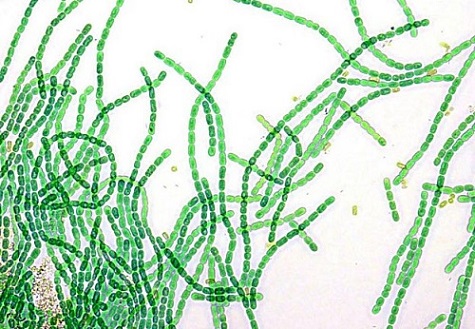Outbreaks of Outbreaks and Enterococcus bacteria causing beach closures in New York, New Jersey and Massachusetts
Nikhil Prasad Fact checked by:Thailand Medical News Team Jul 22, 2024 1 year, 5 months, 5 hours, 56 minutes ago
U.S. Medical News: As the summer season reaches its peak, beachgoers along the East Coast are facing an unexpected hurdle. A recent outbreak of harmful bacteria has led to the closure of numerous popular beaches in Massachusetts, New Jersey, New York, and many other beaches and even lakes across the United States. This sudden development has raised concerns among the public about the safety of their favorite beaches and the potential health risks associated with swimming in contaminated waters.
 Outbreaks of Cynobacteria and Enterococcus bacteria causing beach closures in New York, New Jersey and Massachusetts
Outbreaks of Cynobacteria and Enterococcus bacteria causing beach closures in New York, New Jersey and Massachusetts
Image - Cynobacteria
A Wave of Closures
In Massachusetts, the Interactive Beach Water Quality Dashboard reports that 32 beaches are currently closed. These closures include well-loved spots in Amherst, Boston, Dartmouth, and Salem.
https://www.mass.gov/info-details/interactive-beach-water-quality-dashboard
Similarly, New Jersey has seen closures at Hopatcong State Park in Landing and Beachwood's Beach West, with Toms River in Ocean County also affected earlier this month.
https://njdep.maps.arcgis.com/apps/dashboards/49190166531d4e5a811c9a91e4a41677
https://www.nj.com/ocean/2024/07/nj-river-beach-closed-to-swimmers-for-rest-of-summer-due-to-high-bacteria-levels.html
Blue Marsh Lake beaches were shut down by the US Army Corps of Engineers in early June due to similar concerns.
https://www.nap.usace.army.mil/Media/News-Releases/Article/3828669/swim-beach-closed-at-blue-marsh-lake/
How to Check Beach Safety
For those planning a beach visit, it's essential to check the safety status of the beach before heading out. Delaware, New Jersey, New York, and Pennsylvania have official online beach monitoring systems that provide real-time updates.
https://dnrec.delaware.gov/watershed-stewardship/assessment/swimming-advisory/
The Environmental Protection Agency (EPA) also offers a comprehensive beach advisory website where you can search the status of any beach nationwide.
https://watersgeo.epa.gov/beacon2/beacon.html
Causes Behind the Closures
The primary culprits behind these beach closures are harmful algal blooms, unhealthy levels of enterococcus bacteria, and contamination from animal and human feces. Enterococcus bacteria can originate from both natural and human sources, w
ith wildlife being a significant contributor. These bacteria are a natural part of many water bodies' ecosystems but can linger and pose health risks, especially in areas not regularly flushed by tides.
Local
U.S. Medical News coverages have also reported a growing number of individuals developing serious health conditions as a result of swimming in certain beaches and lakes that were not closed yet but were showing signs of high bacteria levels and algal blooms in the waters.
Understanding Enterococci and E. Coli
Enterococci bacteria are typically found in the intestinal tracts of warm-blooded animals, including humans, and can signal fecal contamination. These bacteria can cause urinary tract infections, blood infections, and endocarditis. Heavy rains can exacerbate the issue by washing animal or human waste into water bodies. Similarly, E. coli, another bacterium living in the intestinal tracts of animals, can cause severe gastrointestinal illnesses when present in high concentrations in water.
Enterococci bacteria commonly cause urinary tract infections, and can also cause blood infections and endocarditis, an inflammation of the lining of the heart's values and chambers
https://www.ncbi.nlm.nih.gov/books/NBK567759/#
Algal Blooms: A Growing Concern
One of the most significant recent incidents involved a harmful algal bloom (HAB) at Lake Hopatcong in North Jersey. The bloom, triggered by a heatwave, led to the closure of the beach area at the state's largest lake. Water samples from the beach showed cyanobacteria concentrations of 86,875, far exceeding the advisory threshold of 80,000. This prompted the New Jersey Department of Environmental Protection (NJDEP) to recommend the closure of public beaches and warn the public to avoid water contact in the area.
Health Risks of Cyanobacteria
Cyanobacteria, the organisms responsible for these algal blooms, can produce toxins harmful to both wildlife and humans. Exposure can lead to rashes, allergic reactions, flu-like symptoms, gastroenteritis, and respiratory and eye irritation. Ingesting water contaminated with these toxins can cause more severe health issues, including headaches, sore throat, nausea, diarrhea, liver toxicity, and neurological effects.
Prolonged Heat and Stagnant Water: A Perfect Storm
The recent heatwave in the region created ideal conditions for the formation of these blooms. Prolonged hot, sunny weather leads to warm, nutrient-rich, and still water, which fosters the growth of harmful algal blooms. Lake Hopatcong's water temperatures reached 86 degrees, a record high that contributed to the bloom's development. Such conditions are not uncommon during summer, making continuous monitoring crucial.
https://www.niehs.nih.gov/health/topics/agents/algal-blooms
High Bacteria Levels Nationwide
The issue isn't confined to the East Coast. Across the United States, several beaches have been closed due to high bacteria levels. Massachusetts alone saw at least 37 beach closures due to "bacterial exceedance," primarily from enterococci bacteria, which indicate possible fecal contamination. California's Coronado beaches, New York's Suffolk County beaches, and four beaches in Michigan also faced closures due to similar bacterial concerns.
https://www.sdbeachinfo.com/
Preventive Measures and Public Awareness
The Centers for Disease Control and Prevention (CDC) advises against swimming in water that looks cloudy, discolored, or smells bad. Additionally, avoiding water near drainage pipes or if experiencing diarrhea can help prevent the spread of these bacteria.
https://www.cdc.gov/healthy-swimming/safety/how-to-safely-visit-oceans-lakes-and-rivers.html
Stay Informed and Safe
As beachgoers navigate the summer season, staying informed about the safety of their local beaches is crucial. Regularly checking online resources for updates on water quality can help ensure a safe and enjoyable beach experience. While the recent bacterial outbreaks have disrupted summer plans, increased awareness and preventive measures can mitigate health risks and keep the public safe.
For the latest
U.S. Medical News, keep on logging to Thailand Medical News.
Read Also:
https://www.thailandmedical.news/news/u-s-medical-news-kentucky-witnessing-a-rise-in-respiratory-infections-including-covid-19
https://www.thailandmedical.news/news/most-americans-oblivious-that-covid-19-is-now-surging-in-45-states-of-which-26-have-high-infections-levels
